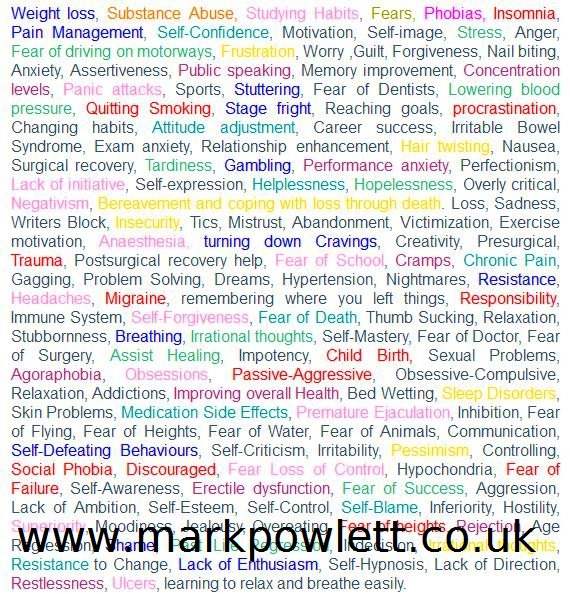Why did I not feel Hypnotised?
Posted on
How do You define Hypnosis?
I often have people who visit me and tell me that they already saw a hypnotherapist in the past, and yet they did not feel that they “were under”.
It’s interesting how people define what hypnosis feels like. I feel that if someone saw someone else and felt that they were not hypnotised then this means that the person they saw simply did not explain what it is. It is nothing like you see on TV and Stage. If you think you will be in a deep sleep and then forget about everything then you are expecting the wrong thing.
Our subconscious mind is more open to suggestion when we let go and relax, but in fact it is open to suggestion all of the time. All we do in hypnosis is find the best way for you to be more open to exactly what you want. No one can make you do anything that you do not want to do. You are always in control, you can move and you will most likely remember everything that happens.

How do hypnotherapists define hypnosis?
I thought a good way to show how everyone speaks about the experience differently would be to give some examples of other hypnotherapists and how they explain how hypnosis feels to their clients:
Other people’s ways of talking about hypnosis...
My viewpoint on hypnosis being 'not a state of eyelids', a state of focus, and a natural state that everyone goes in and out of at multiple times of the day.
Quietening and focusing the mind, allowing the resolution of an issue or issues, it may not necessarily be the only thought heard, but the one being focused on, for me this is shown by the fuzziness of all other thinking at the point of hypnosis, i know it is there, but do not follow it. so, i think,
allowing a single focal point to be achieved in the storm of noise
I suppose it's kind of an altered state of focused concentration. That is, if it really exists.
Perhaps it's more of an altered state of perception either negative or positive which is determined by the level of engaging / ritualistic performance of the operator.
Hypnosis is our most natural state of mind where everything is ok and in which we accept this truth. So that we can create problems or solve them we have to have a vacation from it.
In my world there is no such "thing"as hypnosis. There is
1. Now
2. Neurology (state)
3. Results
I seem to meet the "he could not put me under" most from smokers who have already seen a hypnotist and not achieved the result they think they want. I say something along the lines of:" if you want to be put under, go and see an anaesthetist. My work is the opposite of this. It is about waking up: coming out of the dopey trance you are putting yourself in and finding the freedom you seek to make good choices, and then carry them through.
I define hypnosis as the art of getting real results from imaginary or suggested events.